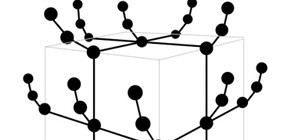
Achieving high fault-tolerance in Blind Quantum Computation
Unconditionally secure “Quantum” Cloud Computing gets closer to reality!
Prof. Imoto’s group in Osaka University collaborating with Imperial College London proposed a new blind quantum computation scheme, which achieves a strong robustness against environmental noise while guaranteeing its unconditional security. This proposal brings scientists one step closer to realization of real-life unconditionally secure quantum cloud computing. This study was published in Nature Communications on 4 September 2012.
A first-generation quantum computer, which will be realized by integrating extremely high technologies, is supposed to be used in a “cloud computing” style since only limited number of groups, such as governments and huge industries, would possess it. The security of the client's privacy in such a cloud computing is of paramount importance in today's ever-expanding digital society.
For classical computation, such a secure delegated computation (or “blind computation”) is highly non-trivial. It is only recently that a computationally secure delegated computation scheme (fully homomorphic encryption) was proposed in the “classical” computation society, which has been a long-standing open question for 30 years. However, if the attacker’s computational power is unlimited, such a cryptosystem based on the computational security is cracked.
In the “quantum” world, one the other hand, the situation changes drastically. Broadbent, Fitzsimons and Kashefi proposed blind quantum computation, whose security relies entirely on principles of quantum mechanics. Thus, blind quantum computation is unconditionally secure (as long as quantum mechanics is the true description of nature). However, their proposal is vulnerable against environmental noise, which is the main obstacle of the realization of blind quantum computation. It was not unclear in what realistic situation blind quantum computation can be realized.
Dr. Keisuke Fujii in Prof. Imoto’s group and Dr. Tomoyuki Morimae in Imperial College London proposed a new blind quantum computation scheme (see Fig. 1) based on topological quantum computation, where quantum information is protected by a topological property of the system. It was shown that the proposed scheme has a strong resilience against environmental noise, and tolerates an error rate of up to 0.43% while guaranteeing unconditional security. Actually, this is the first proposal that allows us to clarify the condition for blind quantum computation in a realistic situation. Since error rates of the order 0.1% have been achieved already in some experimental systems, the present proposal pushes the realization of blind quantum computation within our reach. Quantum computer can simulate present-day “classical” computations efficiently, and hence this result means that unconditionally secure cloud computing gets one step closer to reality.
Journal: Nature Communications
Title: Blind topological measurement-based quantum computation
Authors: T. Morimae and K. Fujii
DOI: 10.1038/ncomms2043
This work is supported by JSPS, ANR(StatQuant, JC07 07205763) and MEXT(Grant-in-Aid for Scientific Research on Innovative Areas 20104003).

Figure 1

Figure 2
Fig. 1 (i) The client sends randomly rotated qubits to the quantum server. (ii) The sever generates a quantum entangled state, topological cluster state, as a resource for measurement-based quantum computation. (iii) The quantum sever performs measurements according to the inputs sent by the client. (iv) The measurement outcomes are returned to the client.
The client successfully obtains the output of quantum computer by using both measurement outcomes sent by the quantum server and the secret key that the client has, while the quantum server (or any eavesdropper) cannot gain any useful information about the client’s inputs, algorithms, and outputs.
Related link
